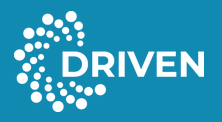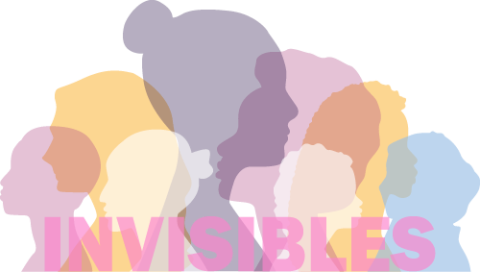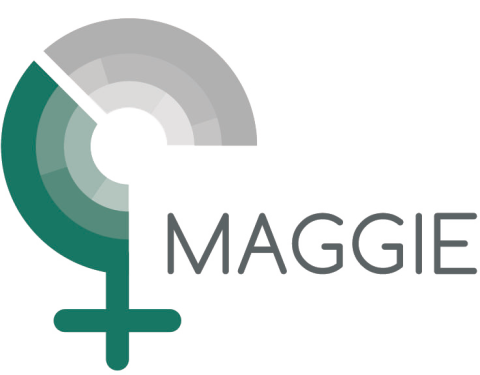Un estudi fet per AQUAS i INGENIO determina que els ajuts PERIS han millorat la qualitat de la professió d'infermeria amb 30 casos d'impacte.
Disseny i Avaluació de Polítiques d'Innovació

Les polítiques d'investigació i innovació s'enfronten actualment a desafiaments crítics: les noves formes de generació i aplicació de coneixement, l'entrada de nous actors i agents en les activitats científiques i d'innovació, l'alineament de les activitats científiques amb els reptes urgents als quals s'enfronten les nostres societats. INGENIO aborda aquests temes, a través de l'anàlisi de nous enfocaments per a la definició i l'avaluació de polítiques d'investigació i innovació.
-
 Míriam Acebillo-Baqué
Míriam Acebillo-Baqué
-
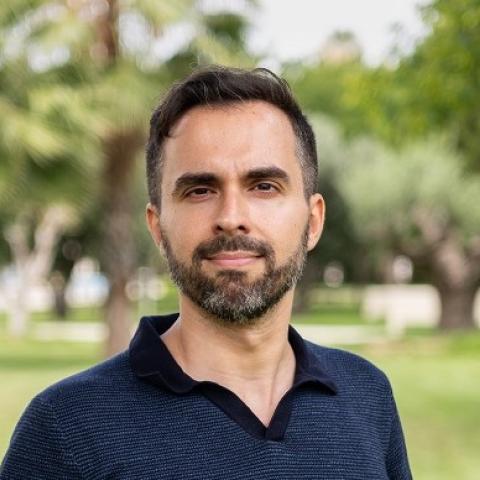 Adrián Arias Díaz-Faes
Científico Titular
Adrián Arias Díaz-Faes
Científico Titular
-
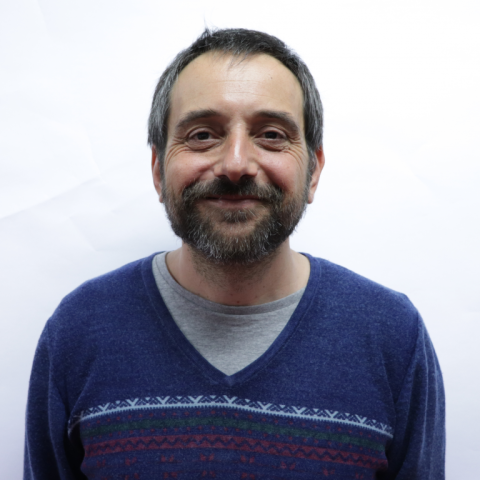 José David Barberá Tomás
José David Barberá Tomás
-
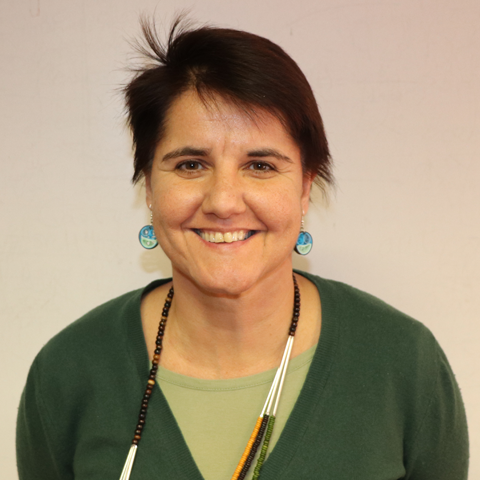 Alejandra Boni Aristizabal
Vicedirectora
Alejandra Boni Aristizabal
Vicedirectora
-
 Mª del Mar Calvet Nogués
Investigadora Predoctoral
Mª del Mar Calvet Nogués
Investigadora Predoctoral
-
 Carolina Cañibano Sánchez
Científica Titular
Carolina Cañibano Sánchez
Científica Titular
-
 Cristina Chaminade
Profesora de Investigación - CSIC/INGENIO
Cristina Chaminade
Profesora de Investigación - CSIC/INGENIO
-
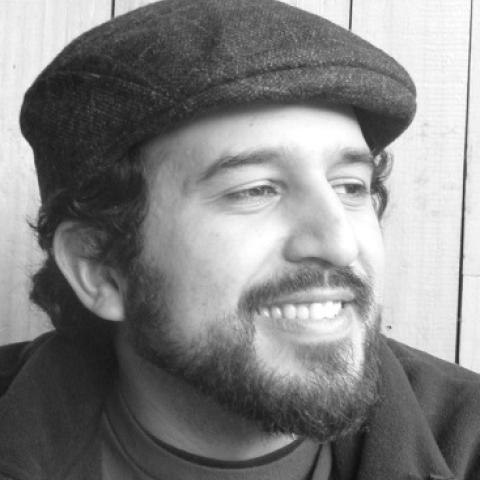 Daniel Cuesta Delgado
Técnico investigación M3
Daniel Cuesta Delgado
Técnico investigación M3
-
 Ana Escario Chust
Ana Escario Chust
-
 Pablo Fernández Méndez
Researcher
Pablo Fernández Méndez
Researcher
-
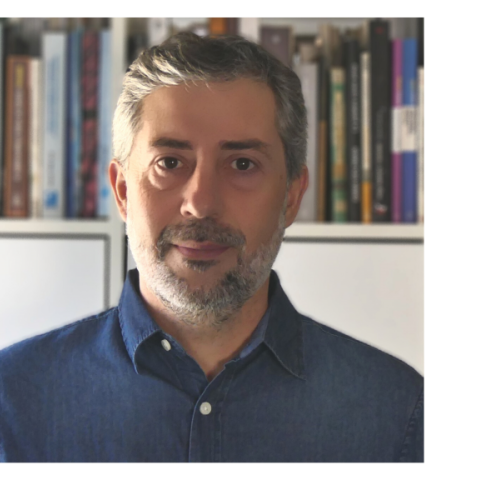 Álvaro Fernández-Baldor Martinez
Álvaro Fernández-Baldor Martinez
-
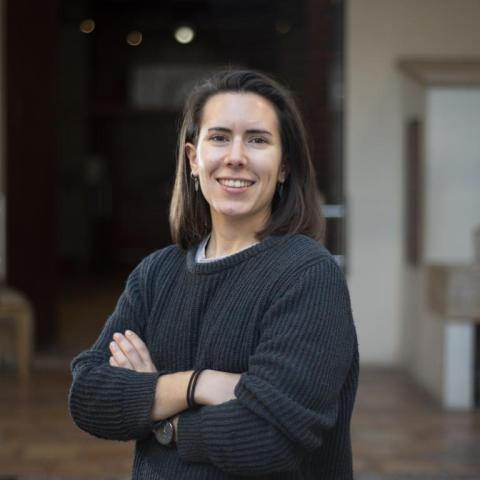 Clara Furió Vico
Estudiant predoctoral
Clara Furió Vico
Estudiant predoctoral
-
 Mónica García Melón
Mónica García Melón
-
 Hannia González Urango
Hannia González Urango
-
 Fernando Jiménez Sáez
Fernando Jiménez Sáez
-
 Oscar J. Martín García
Oscar J. Martín García
-
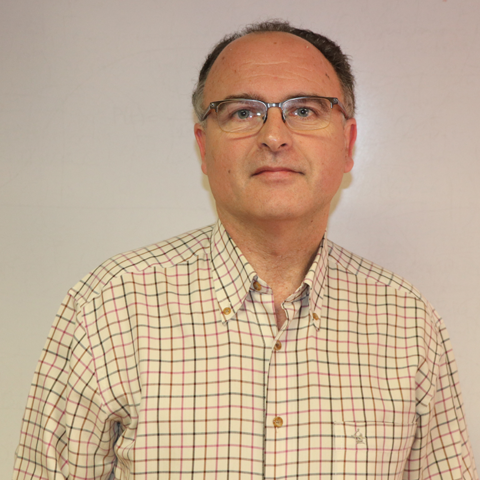 Enrique Meseguer Castillo
Candidato doctoral
Enrique Meseguer Castillo
Candidato doctoral
-
 Jordi Molas Gallart
Director
Jordi Molas Gallart
Director
-
 Irene Monsonís Payá
Investigadora posdoctoral
Irene Monsonís Payá
Investigadora posdoctoral
-
 Julia Osca Lluch
Julia Osca Lluch
-
 Paula Otero-Hermida
Paula Otero-Hermida
-
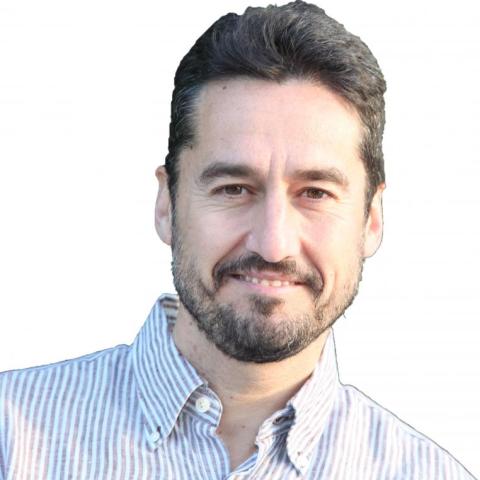 Jordi Peris Blanes
Jordi Peris Blanes
-
 Marta Guadalupe Rivera Ferre
Profesora de Recerca
Marta Guadalupe Rivera Ferre
Profesora de Recerca
-
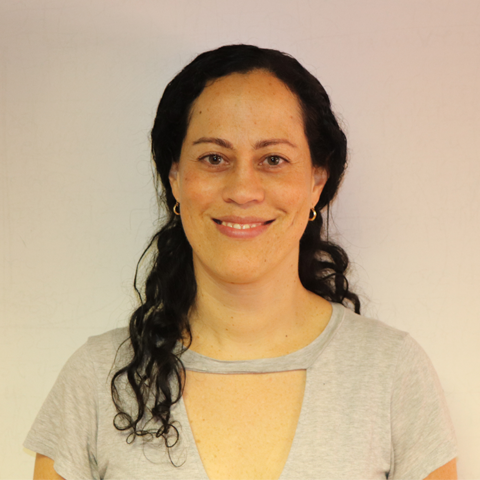 Paulina Terrazas Valdés
Paulina Terrazas Valdés
-
 Diana Carolina Velasco Malaver
Investigadora Post-Doctoral
Diana Carolina Velasco Malaver
Investigadora Post-Doctoral
Mónica García Melón s'incorpora al Consell Assessor de Ciència, Tecnologia i Innovació
Aquest divendres es celebra el VII Core Seminar: "Recerca en Salut Mental: Repensant les prioritats?", que comptará amb la participació de Jordi Molas, director de INGENIO (CSIC-UPV). Es celebrarà Aula Magna de la Casa de la Convalescència (C/ Sant Antoni Maria Claret, Barcelona). L'acte inaugural tindrà lloc a les 09:00 i la jornada s'allargarà fins a pasades les 13:00.
Des del passat 5 d' octubre i fins al proper 16 de novembre, l'Institut de Gestió de la Innovació i del Coneixement, INGENIO (CSIC-UPV) està col·laborant amb el Departament de la Vicepresidència i d'Economia i Hisenda de la Generalitat de Catalunya en un cicle de tallers per treballar en el disseny d’agendes compartides transformatives emprant la del Consorci de Política d’Innovació Transformativa (TIPC).
La política d'innovació transformativa: oportunitats i reptes per impulsar les transformacions de les universitats
14/05/2024 - 14/05/2024 Salim Chalela Naffah - Govern de ColòmbiaLa Generalitat de Catalynya i INGENIO tanquen amb esta un cicle de conferències per al debat reflexiu de les universitats, orientat a la transformació dels sistemes sociotècnics per avançar cap al model socioeconòmic més verd, resilient i just que es postula a la RIS3CAT 2030.
Mapping new knowledge: Using novelty measures critically
09/05/2024 Magda Fontana - University of TurinRecent concerns about potential biases against novelty in science and a perceived decline in creativity have raised interest in quantitatively measuring novelty in research outputs such as scientific articles and patents. However, defining and measuring novelty is a complex task, as it involves capturing the elusive spark of creativity, which is inherently unobservable. This paper proposes a systematic approach to tackle these challenges. First, we propose a theoretical framework to conceptualize the novelty, thereby offering clarity in its measurement.
Inter- y transdisciplina en las Universidades Estatales Chilenas: desafíos y obstáculos para avanzar en su institucionalización
08/02/2024 Pablo Villalobos - Universidad de TalcaLa interdisciplina, así como también la transdisciplina, se han posicionado como un tema de la mayor relevancia en las universidades chilenas. Sin embargo, pese a su progresiva incorporación dentro de los lineamientos estratégicos de las instituciones de educación superior, persisten dudas respecto a sus impactos efectivos, en los modos de generación y transmisión de conocimiento.
Scientific impact: Blessing or curse? Researchers’ happiness and work-life balance
01/02/2024 Joaquín María Azagra Caro - INGENIO (CSIC-UPV)This paper contributes to the literature on the consequences of scientific impact in science. Scientific impact is key to progress and rewarding for researchers. However, the culture of scientific impact puts researchers under competitive pressure, especially when career advances are based on quantitative indicators of scientific impact. The objective of this study is to analyse the effect of scientific impact on the happiness of researchers, a phenomenon underexplored in the literature.
Reimagining Urban Futures: Insights from Ukrainian Recovery Research
18/01/2024 Oksana Udovyk - INGENIO (CSIC-UPV)After more than a year of research at INGENIO, I invite you to an immersive exploration of the trajectory of Ukrainian cities during and post-war reconstruction. This seminar unveils a multifaceted analysis merging: a) network mapping of ongoing initiatives and actors within Ukraine, b) perspectives on net-zero transformation, and c) visionary exploration by Ukrainian refugees.
Target Objects and Authority Relationships as Complementary Explanations of (Non)Science Commercialization
02/11/2023 Inma Aleixos - University of StuttgartThis is very early stage work, which will benefit from an open and constructive exchange of ideas and discussions with the INGENIO community and network. The idea is part of a work-in-progress study on science (non) commercialization (SC). We aim to explain why SC or other ways of knowledge/technology transfer happen more often in some disciplines than in others. The differentiation between basic and applied research or use-inspired basic research (Stoke, 1997) does not fully explain science non-commercialization and commercialization, respectively, within or across disciplines.
How do cooperation and scientific research influence drug development? The case of cancer disease
06/07/2023 Sihan Li - INGENIO (CSIC-UPV)Over 90% of clinical trials for cancer disease drugs fail. It is therefore necessary to increase understanding about the factors that increase the success of drug development. In the present thesis, this issue is addressed from the perspective of Innovation Studies. To this end, 103 articles related to clinical trials, published in innovation journals (1984–2021), are revised systematically. The existing findings are summarised, the studies are classified into categories and some suggestions for potential theoretical and methodological advances in Innovation Studies are provided.
Generación, transferencia, uso y circulación del conocimiento ¿hacia dónde se dirige la investigación universitaria?
23/06/2023 Salim Chalela Naffah - Universidad del Rosario| En este seminario se compartirá la experiencia que se ha adelantado en la Universidad del Rosario, en Bogotá – Colombia, para identificar prácticas de investigación vinculadas con el entorno; el objetivo es promover nuevos instrumentos de fomento a la investigación e innovación que no se centren de manera exclusiva en las publicaciones científicas e impacten en los procesos de evaluación de tray |
Start-Up Coaching: What Does It Add To Societal Impact of Research?
15/06/2023 Inma Aleixos Borrás - University of StuttgartThis is an on-going study in which we explore inductively start-up coaches’ role in developing an entrepreneurial identity in researchers and having impact in research institutions. Our initial working hypothesis was that start-up coaches can play a relevant role in embedding an entrepreneurial mindset in researchers, or steering researchers towards an entrepreneurial horizon. Contrary to our working hypothesis, we found that start-up coaches’ strong commitment with neutrality prevents them from doing so.
Sequencing, bibliometrics and history: a from-below approach to the emergence of human genomics
08/06/2023 Miguel García-Sancho - University of EdinburghIn this talk, I will explore the development of DNA sequencing as a scientific practice from the mid-1980s onwards. By combining qualitative and quantitative methods, I will show that this practice was organised in a variety of ways and that this variety both extends and qualifies the epic history that the proponents of the Human Genome Project mobilised. One of the points of divergence between our stories is that, in my investigation, the sequencing of human DNA was often connected to medical problems.
A simple theory of economic development at the extensive industry margin
28/04/2023 Dario Diodato - Joint Research Centre of the European CommissionWe revisit the well-known fact that richer countries tend to produce a larger variety of goods and analyze economic development through (export) diversification. We show that countries are more likely to enter ‘nearby’ industries, i.e., industries that require fewer new occupations. To rationalize this finding, we develop a small open economy (SOE) model of economic development at the extensive industry margin. In our model, industries differ in their input requirements of non-tradeable occupations or tasks.
Crowds and machines: AI as a manager in large-scale science and innovation projects
04/04/2023 Henry Sauermann - ESMT BerlinArtificial intelligence (AI) can make important contributions to scientific research by performing functional tasks such as reviewing prior literature, classifying digital data, or developing new drug compounds. There is less evidence, however, on the potential of AI as a mechanism to manage human workers who perform such research tasks.
Arte, ciencia, tecnología, una escisión imposible. La transdisciplinariedad como motor para la innovación del conocimiento
19/01/2023 Raquel Caerols Mateo - Universidad Complutense de MadridLas interrelaciones arte, ciencia tecnología no deben ni pueden entenderse como saberes escindidos, pues son la génesis y el fundamento conceptual del nacimiento del pensamiento moderno, el abordaje humanista del conocimiento bebe de ahí, y en la era de lo digital la necesidad de la conformación del saber, su alcance innovador hacer más necesario que nunca la transdisciplinaridad de saberes para construir un mundo sostenible.
Estructura, evolución y financiamiento de la investigación sobre las tecnologías de edición genómica CRISPR
12/01/2023 David Fajardo Ortiz - KU LeuvenLas tecnologías de edición genómica se están desarrollando rápidamente y prometen avances significativos para la biomedicina, la agricultura y otros campos. En un primer estudio, analizamos desde una perspectiva macroscópica el proceso de innovación de seis tecnologías genómicas: vectores virales, RNAi, TALEN, meganucleasas, ZFN y CRISPR/Cas para comprender cómo evolucionó la innovación y qué instituciones influyeron en las trayectorias de investigación.
Las políticas de innovación orientadas a los retos sociales. Oportunidades y desafíos para el desarrollo regional
29/09/2022 Elvira Uyarra - Alliance Manchester Business School - University of ManchesterLas políticas de innovación se han orientado recientemente hacia un planteamiento más transformador que reconoce la centralidad de la innovación para la resolución de grandes retos sociales. La idea de misiones, en particular, ha cobrado mucho protagonismo en el diseño de políticas de innovación en la Unión Europea y también en muchos de sus estados miembros. Sin embargo, la idea de misiones o políticas transformadoras plantean interrogaciones sobre su implementación, las herramientas a utilizar y, en particular, su relevancia para las políticas de cohesión territorial.
A realistic evaluation of science policy – evaluating the “Severo Ochoa” centres of excellence programme of the Spanish government and generating learning for Spanish public administration institutions
15/09/2022 Armela Dino - Ministry of Science and Innovation of SpainThe seminar will offer the opportunity to discuss policy evaluation through a realistic approach. Why is science policy hard to evaluate and how can the critical realism offer some solutions? Empirically, the seminar will bring forward the findings of the research carried out when evaluating the highly reputational Spain’s performance based institutional funding programme, the “Centres of Excellence Severo Ochoa”, and it will discuss how to bring into the public employees’ identity, the researcher’s one.
The Reproductive Bioeconomy in Spain: Market design, regulatory challenges and policy issues
14/07/2022 Vincenzo Pavone - Instituto de Políticas y Bienes Públicos, CSICLast year, nearly 10 per cent of newborn babies in Europe have been born thanks to assisted reproduction techniques (ARTs). In Spain, about one third of them have been born thanks to egg donation schemes. It is no surprise thus, that the growing expansion of ARTs in Europe has been at the center of raging controversies on regulatory and ethical principles, on the one side, and on commercialization and exploitation on the other side, with special attention to the role played by individual motivations in egg donation.
Propuesta de un modelo de medición del bienestar en proyectos de relacionamiento de la universidad con la sociedad
26/05/2022 Maria Mercedes Corral Strassmann - Pontificia Universidad Javeriana, Bogotá, ColombiaCon esta contribución se propone una reflexión y los primeros insumos para una posible batería de indicadores que permitan la medición del impacto social de las diversas actividades de relacionamiento de la universidad, independientemente de si las actividades vienen de extensión, investigación o docencia.
La cultura de prospectiva en las organizaciones
21/03/2022 Lola Elejalde Hernani - Directora de Internacional de InnobasqueLa charla versará sobre la necesidad de mirar al futuro que tienen las organizaciones, el proyecto de extensión de la cultura de prospectiva que pusimos en marcha en Innobasque en 2019, sus resultados y las claves para hacer vigilancia y prospectiva.
Presentation of the European project RISIS2
03/02/2022 François Perruchas - INGENIO [CSIC-UPV]A presentation of the European project RISIS to which INGENIO participates. RISIS (European Research Infrastructure for Science, technology and Innovation policy Studies) aims at building a data and services infrastructure supporting the development of a new generation of analyses and indicators about Science, Technology and Innovation (STI). It provides 14 datasets about STI, services for data enhancement and analysis (e.g. geocoding, network analysis), and a portal to access and connect these datasets and services.
